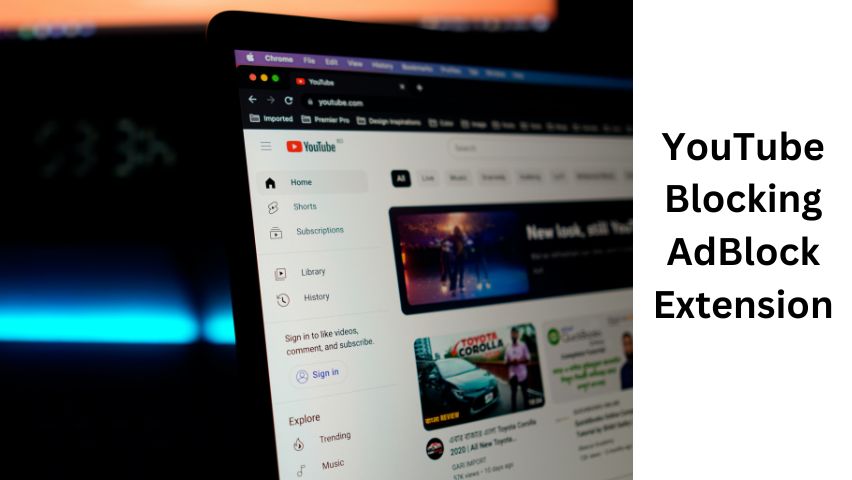YouTube, the renowned video-sharing platform, has become an integral part of our digital lives, enabling users to watch, create, and share videos. The platform relies on advertising revenue to support its creators and sustain its services. However, the rise of ad blockers poses a challenge to this ecosystem, prompting YouTube to experiment with new policies. Let’s have a look into the topic of YouTube Blocking AdBlock and its options.
Why YouTube Blocking AdBlock Extensions?
Here are five reasons why YouTube Blocking AdBlock extensions:
- Protect Revenue Streams:
- YouTube relies heavily on advertising revenue to sustain its platform.
- AdBlock extensions can significantly reduce ad impressions, affecting the income generated for creators and the company.
- Enhance User Experience:
- Intrusive and irrelevant ads can be frustrating for users, leading them to seek ad-block solutions.
- Blocking ad blockers may encourage advertisers to create more engaging, non-disruptive content.
- Maintain Content Quality:
- Reduced revenue due to ad blockers can result in budget cuts for content production.
- Blocking ad-blockers helps ensure the availability of high-quality content on the platform.
- Comply with Advertiser Demands:
- Advertisers expect their content to reach the widest audience possible.
- Blocking ad-blockers ensures that ads are seen by a larger portion of the YouTube user base.
- Legal and Ethical Considerations:
- Ad-blockers can sometimes circumvent contractual agreements between YouTube and advertisers.
- YouTube may view the blocking of ad blockers as a way to uphold these agreements and maintain ethical standards within the digital advertising ecosystem.
What are the Options?
Here are some of the ways to retain their ad-free YouTube experience;
- Subscribe to YouTube Premium: YouTube Premium offers a compelling solution. This paid subscription service eliminates all advertisements from the platform. Beyond ad-free content, subscribers also gain access to enticing features such as offline playback and background listening. While the subscription cost varies by region, it typically hovers around $10 per month.
- Leverage Browser Extensions: An array of browser extensions can effectively block ads on YouTube. Some extensions specialize in targeting specific types of ads, particularly those deemed intrusive or malicious. Consider these popular ad blockers for Chrome and Firefox.
For Chrome:
- AdBlock
- AdBlock Plus
- uBlock Origin
For Firefox:
- AdGuard AdBlocker
- uBlock Origin
- Nano Adblocker
Additional Alternatives
If neither YouTube Premium nor browser extensions align with your preferences, explore these alternatives:
- Virtual Private Network (VPN): Employ a VPN to mask your online activity and prevent YouTube from detecting your ad blocker usage. Keep in mind that using a VPN may slightly decrease your internet speed.
- Alternative Web Browsers: Investigate web browsers like Brave and Opera, which come equipped with built-in ad-blocking features.
Conclusion
YouTube’s decision to combat ad blockers remains a contentious topic, with both advantages and drawbacks. The long-term impact on the platform remains uncertain. For users intent on preserving their ad-free YouTube experience, the choice among available options hinges on individual needs and preferences. As the landscape evolves, so too will the strategies available to navigate these changes effectively.
FAQs
YouTube is blocking the AdBlock extension because it hurts creators and the company itself. Ad blockers prevent creators from earning money from the ads that are shown on their videos, and they also prevent YouTube from collecting data about how users watch videos. This data is used to improve the platform’s recommendations and advertising. By blocking ad blockers, YouTube is trying to ensure that all users contribute to its bottom line.
There are a few options for users who want to continue using ad blockers on YouTube. One option is to subscribe to YouTube Premium, which removes all ads from the platform. Another option is to use a browser extension that blocks only certain types of ads, such as those that are considered to be intrusive or malicious.


